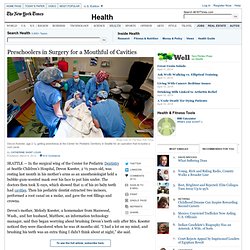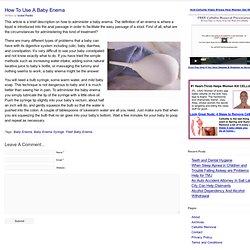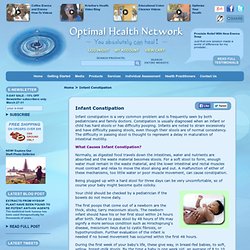

CONGESTION. COLIC. Green Baby. FEVER. 12 Natural Immune System Boosters. Nature's Sunshine VS-C Liquid Product Information. Healthy Habits For Kids That Fight Cold & Flu Viruses: Hand Washing and Other Tips. As your babies get older -- and grow out of that maddening I-must-put-everything-in-my-mouth phase -- you can start teaching them habits that will protect them from germs like cold and flu viruses.
How soon? The sooner the better. "Good hygiene habits are much easier to introduce when your kids are young," says Laura A. Jana, MD, a pediatrician in Omaha, Neb. and co-author of Heading Home with Your Newborn and Food Fights. "Bad habits are hard to break. " Adopting healthy habits for kids can have concrete benefits. "If they start learning proper hygiene when they're young, they may not get sick as much when they're older," says Tanya Remer Altmann, MD, a pediatrician and author of Mommy Calls:Dr.
So what sort of healthy habits for kids are realistic? Healthy Habits for Kids: Getting in a Routine When teaching healthy habits, focus on what's important. "You really can't teach a preschooler to stay away from a friend who's coughing," Jana tells WebMD.
Rise in Preschool Cavities Prompts Anesthesia Use. Stuart Isett for The New York Times Devon Koester, age 2 ½, getting anesthesia at the Center for Pediatric Dentistry in Seattle for an operation that included a root canal.

Dentists’ Tips for Healthy Baby Teeth Dentists suggest a number of tips for parents to prevent the decay of baby teeth: Take an infant to a dentist before the first birthday for an assessment of cavity risk, even if the child has only a few teeth. In general, brush the teeth of children 2 or younger with a bit of fluoride toothpaste twice a day. Reduce snacking. Do not share utensils with a child or “clean” a pacifier in your mouth, then give it to your infant. Research has shown that parents or caregivers with active tooth decay can pass cavity-causing bacteria via saliva. Brush preschoolers’ teeth for them. Stuart Isett for The New York Times Devon Koester, age 2 ½, with cavities in 11 teeth, having his blood pressure checked before general anesthesia for surgery.
But such operations are largely preventable, he said. Dr. Healthy Detox Cleanse. This article is a brief description on how to administer a baby enema.

The definition of an enema is where a liquid is introduced into the anal passage in order to facilitate the easy passage of a stool. First of all, what are the circumstances for administering this kind of treatment? There are many different types of problems that a baby can have with its digestive system including colic, baby diarrhea, and constipation. It’s very difficult to see your baby constipated and not know exactly what to do. If you have tried the simple methods such as increasing water intake, adding some natural laxative juice to baby’s bottle, or massaging the tummy and nothing seems to work, a baby enema might be the answer.
You will need a bulb syringe, some warm water, and mild baby soap.
Infant Constipation and the Baby Enema. Infant constipation is a very common problem and is frequently seen by both pediatricians and family doctors.

Constipation is usually diagnosed when an infant or child has hard stools or has difficulty pooping. Infants are noted to strain excessively and have difficulty passing stools, even though their stools are of normal consistency. The difficulty in passing stool is thought to represent a delay in maturation of intestinal motility. What Causes Infant Constipation? Normally, as digested food travels down the intestines, water and nutrients are absorbed and the waste material becomes stools. Being plugged up with a hard stool for three days can be very uncomfortable, so of course your baby might become quite colicky. Your child should be checked by a pediatrician if the bowels do not move daily.
The first poops that come out of a newborn are the thick, sticky, tarry meconium stools. Just like grown-ups, children need to move their bowels daily. Common Myths. CONSTIPATION.